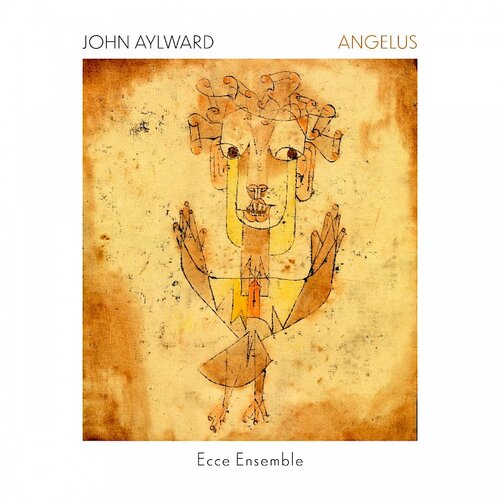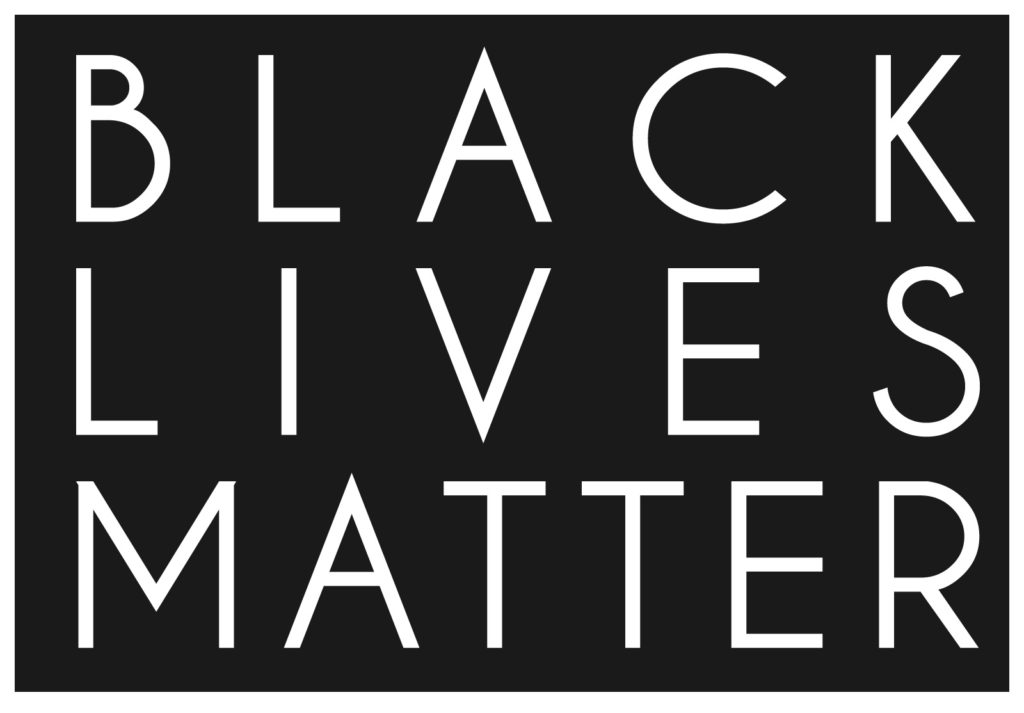
New Focus Recordings presents John Aylward’s Angelus
Conducted by Jean-Philippe Wurtz
Release Date: April 24, 2020
Genres: Classical, Contemporary Chamber Music
Text translations and adaptations by John Aylward.
Performed by Ecce Ensemble: Nina Guo, voice; Emi Ferguson, flutes; Hassan Anderson, oboe; Barret Ham, clarinets; Pala Garcia, violin; John Popham, cello; Sam Budish, percussion
Disclaimer: Classical music is #whiteculture. While reading this critique please consider the impact white culture has on Black and Brown bodies. Right now is an excellent time for we white artists to figure out how to even the playing field. Black lives still matter during times of peace.
Critique by Kitty Drexel
Digital Recording/Streaming — On the cover of Ecce Ensemble’s recording of Angelus is a reprinting of Paul Klee’s Angelus Novus. A glorified stick figure in beige and mulled yellow, this humanoid seraph bares conical, gapped teeth at observers that look ready to snap. Its wings are elongated fingers with nail beds. Its feet are stunted three-pronged talons. Klee’s angel is no sentimental rendering of a chubby baby in sheets. It is more Biblical destroyer than Anne Geddes. This image prepares the listener for the ethereal violence of Aylward’s work.
Angelus is a beautiful and strange experience. It examines the boundaries of tonality and dissonance, rhythm and prose. It is exemplary of the greatness that modern classical musicians are capable of at this moment. It is an exercise in musical experimentation. It is also why people make fun of us.
The dichotomy of Nina Guo’s voice pure, siren-like soprano against the shivery tones rung from the strings and winds will unsettle listeners more attuned to music from earlier periods. They won’t get it. They could get it if they want to but most won’t. Yet! Audiences were dubious of René Pape´s first solo-CD Mein Herz Brennt too. They were less dubious of Renée Fleming’s tragically underwhelming 2005 album Haunted Heart. Pape was successful. Fleming… was elegantly, tastefully bad. Both albums were intended for specific audiences. Those audiences loved them. There’s nothing wrong with that.
Angelus is edgy and represents a faction of classical music that would knock the knickers off of most season subscribers. It exists for a niche audience of rabidly appreciative artists, allies, and loving family members who want to understand the music so much that they’ll listen until they do. Ecce’s recording is beautifully executed. Its performances sound flawless. All the mastery in world will not prevent uneducated plebes from making fun of it.
A description of Angelus from the New Focus Recordings website:
“Composer John Aylward releases Angelus, his monodrama for voice and ensemble inspired in equal measure by his mother’s experience as a refugee fleeing Europe during World War II, Paul Klee’s affecting painting “Angelus Novus,” and a series of texts that speak to themes common to her story of displacement and resilience. The performance features soprano Nina Guo in a wide-ranging part with the Ecce Ensemble, of which Aylward is the director.”
About the Ensemble:
Ecce Ensemble is an ensemble of performing and creative artists who take on intensive collaborations and pedagogical projects that touch on important cultural and social aspects of our time. Their core aim is to work in a collaborative, creative, socially engaged and interdisciplinary way. Directors of the group routinely reach out to artists from around the world to assist in the group’s collaborative projects and the ensemble itself is diverse in its talents and creative visions.
About the Composer:
John Aylward’s music is influenced by a range of modern and ancient literature and deeply affected by time spent in the deserts of Arizona and New Mexico. These streams of influence have led to a music that considers ancestral concepts of time, appropriations of indigenous cultures into surrealism, impressionism and post-modernism, and the connections between creative mythologies across civilizations. Aylward’s work has been performed internationally by a range of ensembles and soloists, and his own ensemble, Ecce, has served as a laboratory for his larger projects to take shape. Both as a pianist and as a director of the Etchings Festival, Aylward has supported new music of all kinds through commissions and performances.

